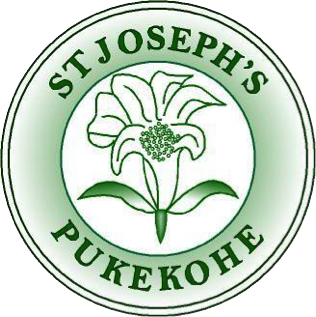SCHOOL POLICIES
A link to our school policies can be found on our school website or through www.schooldocs.co.nz
- Go to www.schooldocs.co.nz/
- Click Search for your school
- Start typing the school’s name (St Joseph’s School Pukekohe) and then select it from the dropdown list.
- Enter the community username: stjosephspukekohe and password: mission.
SchoolDocs Term 2 Policy Review:
In Term 2, the Board, staff and community are asked to review the following policies: Planning and Preparing for Emergencies, Disasters, and Crises (board), Communication During an Emergency, Disaster, or Crisis (board), Emergency Closure (board), Emergency Management, Disaster Management, Crisis Management.
If you would like to contact the Board directly at any time, please do so through our email address schoolboard@stjosephs.co.nz
EDUCATION REVIEW OFFICE (ERO) PARENT AND WHAANAU SURVEY
Researchers at the Education Review Office (ERO) are doing some research about school attendance. They want to hear your thoughts about what makes a difference.
Please help by clicking on this survey link: Parent and Whānau Survey
2026 COHORT ENTRY ENROLMENT (for Year 0/1) CONSULTATION
We are currently seeking feedback from our whānau, staff, and the community of local preschools on the proposed implementation of a Cohort Entry Policy at St Joseph’s School Pukekohe.
What is Cohort Entry?
Cohort entry allows new entrants to start school in groups at specific times during the year, rather than individually on or after their fifth birthday. Under this policy, new entrants will start school in cohorts after they have turned five, with two entry points per term: one on the first day of term and one at the mid-point of the term. These dates are set by the Ministry of Education.
Benefits of Cohort Entry
Cohort entry aims to help children settle better into school. Starting as a group at the beginning or mid-point of the term allows for a consistent and progressive induction process, rather than repeating the induction multiple times throughout the term. This ensures that all children receive the same information and support simultaneously, fostering a sense of community and teamwork.
Research indicates that starting school alongside peers helps children build relationships and support a smoother transition into school life. It also enables teachers to better address the social and emotional needs of children as they adjust to a new environment.
Schools that have adopted cohort entry report that it provides children with the best start to their school journey. It reduces disruptions for new entrant teachers, who can prepare for groups of children arriving on specific dates rather than individually throughout the year (referred to as Continuous Entry).
We Value Your Feedback
We invite you to share your thoughts on the proposed change to our New Entrant Enrolment Process.
Please submit your feedback to principal@stjosephs.co.nz by 12pm on Monday 9th June.
We will inform you of the outcome of this consultation in Term 3.
St Joseph’s School Pukekohe Development Trust
We are looking for parents to join our St Joseph’s School Development Trust.
You do need to have an understanding of property, finance, business, and/or law.
Please register your interest with our principal Ursula Hall. principal@stjosephs.co.nz
The St Joseph’s Development Trust will meet at 6:00 pm on Wednesday 11 June in the boardroom.

|
At St Joseph’s, we know that regular school attendance is essential for every child’s learning and success. This year, as part of our annual plan, we are placing a strong emphasis on attendance, aligning with the government’s priority to ensure students are at school and engaged in learning. Our goal is for 80% of our students to attend school at least 90% of the time. Research shows that children who attend school consistently make better progress academically and socially. Every day counts—missing just one day a fortnight can add up to a month of lost learning each year. We encourage whānau to prioritise attendance, ensuring that children develop strong routines, build friendships, and make the most of their learning opportunities. Let’s work together to give our tamariki the best possible start to their education.
The percentage of ākonga attending school regularly during Term 1 (attending more than 90%, an average of 9 days a fortnight) = 75% (09/05/25). Our average daily attendance was 93%.
In Term 1, 26% of children were regularly late to school i.e. 88 students were arriving at school after 8:45 am.
|
